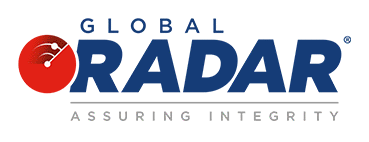The Financial Action Task Force (FATF), the premier intergovernmental policymaking body setting international standards to prevent the proliferation of money laundering and terrorism financing, recently released its updated “grey list” for 2021. Their report identifies several countries that will require increased monitoring with respect to addressing deficiencies in their AML/CFT protocols moving forward, while also providing updates on the status of efforts made by various countries to cooperate in the greater global battle against financial crime. Many tend to confuse the FATF’s grey list with global blacklists published by various regulatory and governmental authorities, given that the countries found on these lists generally represent a significantly higher risk of having ties to widespread financial crime. However, grey-listed countries have in fact committed to swiftly resolving their strategic deficiencies in this regard within agreed upon timeframes all while being subjected to increased oversight – either directly by the FATF or under FATF-style regional bodies (FSRBs). To date, only the Democratic People’s Republic of Korea and Iran have made it onto the FATF’s official blacklist, for obvious reasons. In publishing said list, the FATF attempts to both pressure and encourage countries to improve their respective regulatory programs, while seeking to establish a more standardized set of AML/CFT policies for countries around the world.
The updated list will see a total of four jurisdictions – the Cayman Islands, Morocco, Senegal and Burkina Faso – added to a list of 15 established countries that are subjected to increased monitoring, pointing out specific limitations in the safeguards of each of these respective jurisdictions in the process. Despite the economic and geopolitical variance between them, several mutual limitations were identified across all four of these freshly-minted countries that included improvements needed in maintaining comprehensive beneficial ownership information on companies operating within their borders and expanding the operations of the countries’ financial intelligence units.2 The Cayman Islands, a British overseas territory, has long been regarded as a rather illustrious tax haven and has become a top destination for white-collar criminals and corrupt political figures attempting to launder ill-gotten cash. In 2020, the Tax Justice Network published a study ranking the Cayman Islands as the world’s most prominent location for financial secrecy. In fact, the Cayman Islands host greater than 100,000 companies – a total nearly double that of the total population of the Islands – though few firms hold an actual physical presence there. The lack of a corporate tax has created an ideal environment for international organizations to base subsidiary entities (as well as have individuals/smaller firms create offshore shell companies) to avoid the hefty taxes faced on domestic soil. Making Cayman all the more appealing to an influx of foreign funds is the fact that the government imposes no direct taxes on residents (i.e. income, property, payroll, etc.) making them one of the few “tax neutral” countries in the world. With all the money flowing through the Islands, along with the discreet nature of business that occurs there, naturally there is great concern about the potential for money laundering and other destabilizing activities branching out from this Caribbean island paradise.
In their report, the Financial Action Task Force notes the Cayman Islands simply are not doing enough to prevent illicit financial activity from running rampant. The Wall Street Journal writes that the FATF has insisted that the Islands must “impose effective administrative penalties and enforcement actions against entities involved in money-laundering violations, as well as implement adequate sanctions in cases where accurate and timely beneficial ownership information isn’t provided.”2 FATF President Marcus Pleyer has called for commensurate measures to be taken by the national government against the AML/CFT risks identified in their report, with a representative for Grand Cayman noting that they have already completed 60 of 63 FATF recommended actions to strengthen their AML system and has committed to completing the other remediation efforts as part of an established action plan in the months to come.
Unlike the Cayman Islands, Pakistan has found itself on the “grey list” for some time now. Since joining the list in 2018, the Pakistani government has come up short in addressing its unique counter-terrorist financing-related deficiencies. This essentially forced the FATF’S hand in issuing a final warning in 2019 that called for the Middle Eastern country to meet a total of 27 remaining action points by September of 2020 or face being downgraded to the FATF’s blacklist. Since being given this ultimatum, Pakistan has made significant strides with respect to national law enforcement agencies identifying and investigating a wide range of terror-financing activity, as well as working to prevent the raising and moving of funds including by controlling facilities and services owned or controlled by designated persons and entities.1 Despite these improvements, the report reads that Pakistan must continue to work towards addressing three remaining deficiencies. These include “(1)demonstrating that TF investigations and prosecutions target persons and entities acting on behalf or at the direction of the designated persons or entities; (2) demonstrating that TF prosecutions result in effective, proportionate and dissuasive sanctions; and (3) demonstrating effective implementation of targeted financial sanctions against all 1267 and 1373 designated terrorists, specifically those acting for or on their behalf.”1Being on the grey list for this prolonged period of time has already cost a country already struggling economically in wake of the COVID-19 pandemic an estimated (and eye-popping) $38 billion. Given that the vast majority of the world respects and adheres to the standards of the FATF, the effects of the reputational blow associated with being grey or blacklisted can carry significant consequences for exports, gross consumption and foreign direct investment. Not many are willing to continue to engage with these jurisdictions following these designations, given that they too could face sanctions or serious financial penalties in doing so.
Time will tell what the effects of grey-listing the Cayman Islands will have on foreign investment, given the mostly shrouded and clandestine nature of the financial activity that occurs there, though it remains clear that intervention is undoubtedly needed to bring the illicit financial activity occurring within their borders to light for the collective good of the rest of the world. In today’s increasingly complex regulatory landscape, Global RADAR solutions can provide comprehensive screening that can be configured and deployed quickly to allow you to screen against all published international sanctions, watch and grey/blacklists all with just the click of a mouse, ensuring organizational compliance and bringing you much needed peace of mind. Allow us to do the heavy lifting for you by visiting www.globalradar.com.
Citations
“Jurisdictions under Increased Monitoring – February 2021.” Documents – Financial Action Task Force (FATF), Feb. 2021.
Sun, Mengqi. “Cayman Islands, Morocco Placed on Terror-Financing Watch List.” The Wall Street Journal, Dow Jones & Company, 26 Feb. 2021.

